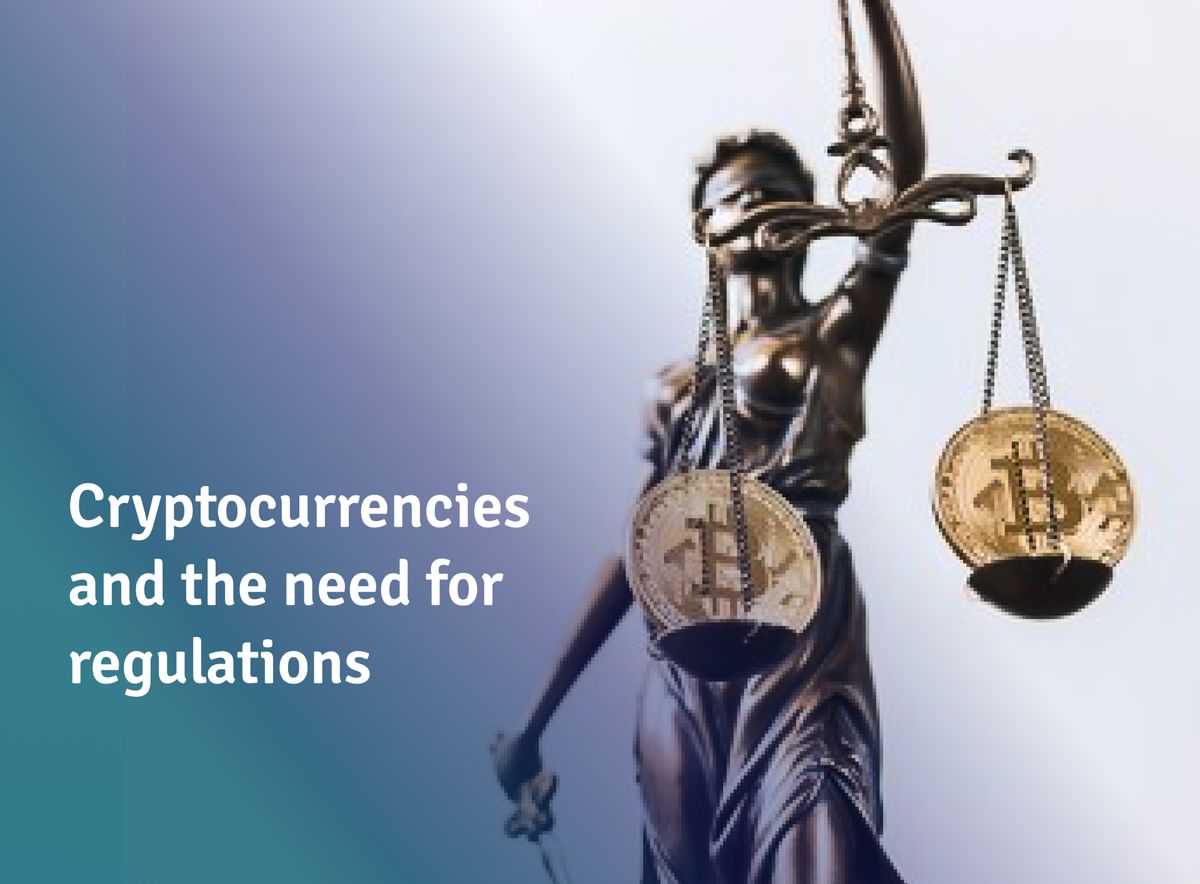Cryptocurrency And The Need For Regulations

Cryptocurrency has evolved from being regarded as an online fad to becoming a major part of a new technological as well as financial phase of development in the world.
2021 saw an increased interest across countries in the crypto, defi and blockchain industries. It is interesting to see how the perception of cryptocurrency has shifted from being regarded as a “scam” to being the bedrock of the new digital ecosystem and, most recently, the metaverse.

However, there is still considerable pushback from individuals, institutions and governments; and a major reason for this is the lack of regulations guiding the operation of cryptocurrency.
Cryptocurrency is run on the premise of decentralized finance (commonly known as DeFi). DeFi lets you do most things banks typically offer, like trade assets, earn interest and so on - but quicker and without third-party services and a mountain of paperwork. This absence of a centralized system poses a problem to regulatory bodies. To buttress this, here are the current regulations on ground in several countries:
United States
Although a significant number of blockchain companies and cryptocurrency investors are based in the US, the country still lacks a fully defined regulatory framework for crypto as an asset class.
The Securities and Exchange Commission (SEC) regards cryptocurrency as a security, while the Commodity Futures Trading Commission (CFTC) classifies Bitcoin as a commodity. The Treasury calls it a currency.
For tax purposes, the Internal Revenue Service (IRS) categorizes cryptocurrencies as property. Crypto exchanges are required to comply with combating the financing of terrorism (CFT) and anti-money laundering(AML) obligations.
United Kingdom
In the U.K., cryptocurrency is regarded as property but not legal tender. Crypto exchanges are required to register with the U.K. Financial Conduct Authority (FCA). This regulatory body also has cryptocurrency-specific exigencies related to know-your-customer (KYC), CFT AND AML obligations. Despite the fact that investors still pay capital gains tax on profits from crypto trading, taxability majorly hinges on who and what crypto activities are carried out.
European Union
In most countries within the European Union (EU), cryptocurrency is legal, and each member country controls exchange governance within its jurisdiction. Regarding taxation, it varies from country to country within the EU.
In September 2020, the European Commission put forth the Markets in Crypto-Assets Regulation (MiCA)—in a bid to tighten consumer protection, provide new licensing standards and establish defined cryptocurrency industry appropriate conduct.
**
Some countries like Bolivia, China and Egypt have totally banned the use or exchange of cryptocurrency, while others like Nigeria, India and Turkey have restricted the use of or partially placed bans on crypto use.
With this lack of uniformity across countries, it is clear to see why the regulation conversation around cryptocurrency keeps going back and forth.

Nonetheless, the value of the cryptocurrency market continues to rise and gather momentum. As of December 2o21, cryptocurrency hit nearly $ 2 trillion in value, a huge leap from the nearly $16 billion market it was at 5 years ago.
While this may seem small when compared to the global fiat money market value, it is very impressive for a new digital asset class. To top it off, cryptocurrency hits an average annual growth rate of over 150%.
These growth margins and the potential for what cryptocurrency will (probably) inevitably become highlight the need for proper regulation to be established and agreed upon across continents. Governments, policymakers, financial services firms, fintechs, and regulators need to figure out how to implement regulations that will offer user protection without stifling market growth.
THE FUTURE OF CRYPTOCURRENCY REGULATIONS
This excerpt from a speech by Carolyn A. Wilkins, an external member of the Bank of England's Financial Policy Committee, sums up the future of cryptocurrency regulations and what they should look like.
“...Crypto assets are the bedrock of the emerging financial ecosystem, so supporting consumer protection and financial soundness is the first order of business for regulators. We must recognise that the opportunities and risks extend well past the crypto assets themselves to encompass a rapidly expanding range of financial services. The future of this new frontier depends critically on the regulatory response to these new activities and how fast the traditional financial system modernizes. To get the most out of these innovations, we need to modernize our legal and regulatory frameworks so that businesses and investors have clear and predictable rules of the game, and the risks to the financial system are managed. This will take major investments in domestic and cross-border payments, as well as digital governance. If we do that, we will realize the promise of reinvention and expansion for those who rely on efficient and trustworthy financial services.”

TAKEAWAY
Cryptocurrency is here to stay, and it keeps proving this year after year. Despite its volatility and the rise of crypto-related illegal activity, the market has solidified itself as one of the cornerstones of the new online ecosystem.
Now more than ever, there is a need for regulators to come together to put structures in place to ease the inevitable expansion and transition that would be brought by cryptocurrency, decentralized finance, blockchain and web3.
Disclaimer: This article was written by the writer to provide guidance and understanding of cryptocurrency trading. It is not an exhaustive list and should not be taken as financial advice. Obiex will not be held liable for your investment decisions.




